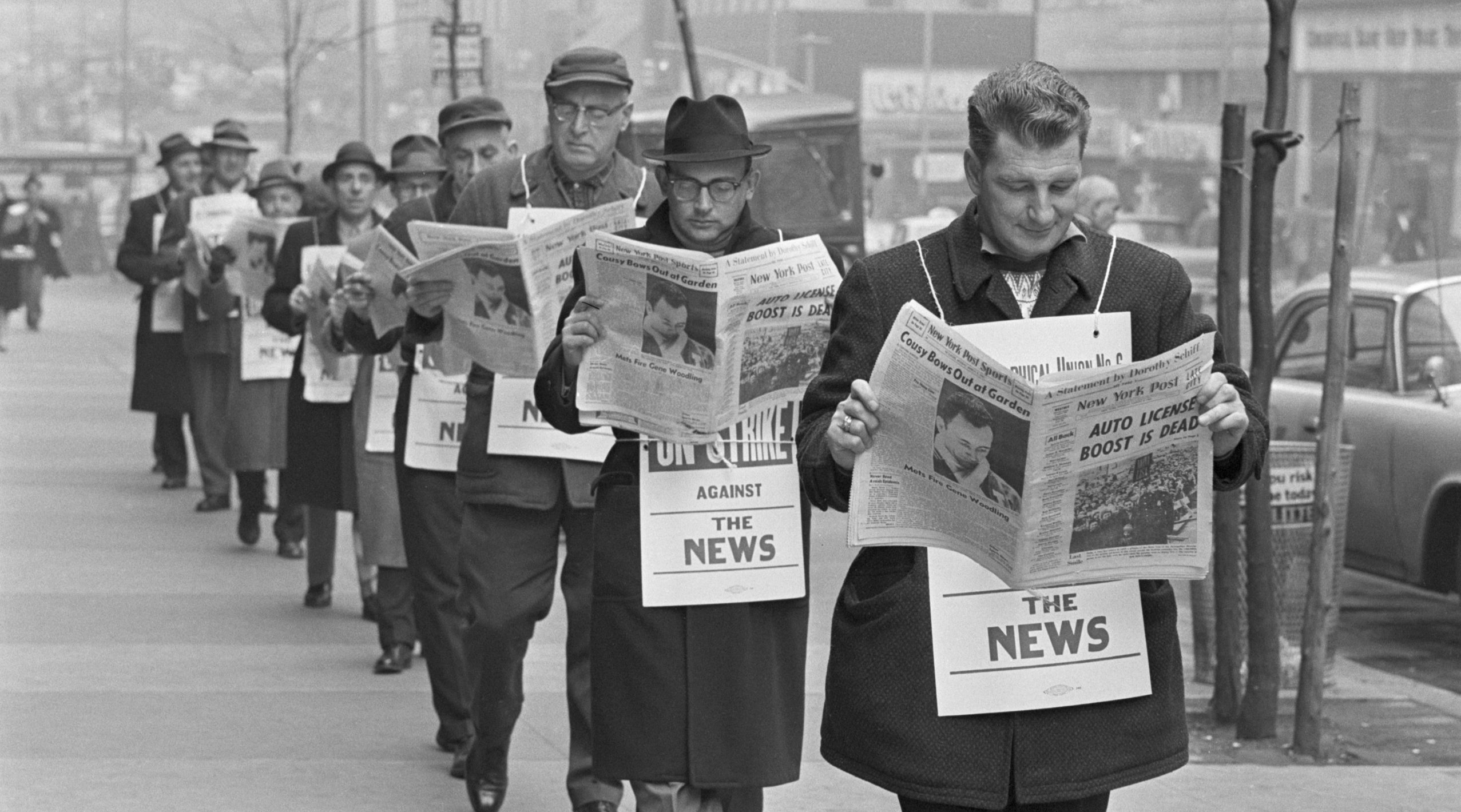November saw the bathetic end of COP26 in Glasgow, inflation and supply chain problems haunt the global economy, and a rambling Boris Johnson speech about Peppa Pig.
But elsewhere — especially in the expanding digital ecosystem of Substack — writers and journalists less tethered to the news cycle have been following their own interests, and producing superb work. Over the course of the month, UnHerd staff collected some of the best new writing.
1. Salman Rushdie remembers the Beatles
It was the end of January, 1969. Salman Rushdie was a 21-year-old student who had just graduated from Cambridge University. He was in central London on his way to a job interview in an advertising agency. He left, and turned down Savile Row, where a small crowd was gathered outside No. 3, looking up towards the sky. This is what he remembers happening next:
I asked someone, “What’s going on?” “It’s the Beatles,” he replied. “They’re on the roof.” Watching Beatles: Get Back, you might form the impression that everyone at street level could hear the concert perfectly. That wasn’t true. We heard a sort of loud generalized music noise, without being able to make out what was being sung or played. It didn’t matter. I had never seen The Beatles playing live, and now they were up there! On the roof! It was very exciting. And then after maybe ten minutes it was boring, because (see above) I couldn’t really hear that much. I moved on, wondering (as one or two bystanders in the documentary wonder) why they were up there. They were The Beatles. They could have played anywhere. To choose their office roof seemed… odd. Watching the Concert on the Roof more than half a century later, I was filled with emotion. There was the memory of my own distant youth, encountering history and then leaving it behind…
- Salman Rushdie, Substack
2. Wokeness is over…
… at least that’s what essayist Freddie deBoer argued this month. Social justice politics is not winning. Not in America anyway. Those who make a living from ritualistic expressions of moral outrage don’t realise that they are running out of road. No, elites are not suddenly going to believe in freedom and nuance and forgiveness again. But other forces are harrying them:
Anarchy, resistance, revulsion towards piety, the desire for revenge, the death drive, animal spirits, the id, the unheimlich, Jungian impulse, and most of all utter and total moral exhaustion. These are chip chip chipping away at the arrogant command of our moral betters. There are forces arrayed against the piety and vengefulness of social liberalism that cannot possibly meet it on the open field but which every day wage guerilla warfare and, slowly, the great shaggy beast is bleeding out, that creature of preening righteousness slowly crippled by its hubris and arrogance. What looks like the inevitable and impregnable demands of history right now will look in time like the decaying aristocratic mores they are.
- Freddie deBoer, Substack
3. Why the culture wars run on vagueness
At The Ruffian, author Ian Leslie suggested that abstractions, even though they are needed to conduct political arguments, ultimately end up making them “low resolution”. As in: fuzzy and useless. Abstractions like:
Capitalism, fascism, neo-liberalism, structural racism, transphobia, wokeness: these giant, airborne nouns, which float around the discourse like zeppelins, are unavoidable in some ways. We probably have to use them. But we should be aware that there is a price to be paid, in clarity and intelligence, for doing so. I sometimes read passages of writing that consist of almost nothing else. I try and use them as sparingly and as precisely as possible, wincing a little inside as I do so. And sometimes when I search for a way to say what I’m saying without using the obvious word, I find a more powerful way of saying it.
- Ian Leslie, Substack
4. Decadence is chronic illness
On his ‘stack, New York Times columnist Ross Douthat regularly writes about the ‘decadent’ state of Western democracies. A political stalemate between what Douthat calls “a blinkered ruling meritocracy and a paranoid populist alternative”. This month he compared this stagnation to the feeling of chronic illness, which Douthat himself suffers from:
If you think of decadence as a reassuringly-slow, often-pleasant-seeming glide toward some sort of dystopia, then the occasional lurches, the downward jolts that happen occasionally before the slower glide resumes, are also the moments of maximal opportunity to actually redirect your course. That doesn’t make them desirable, exactly, since if the opportunity isn’t seized you’ve just ended up in someplace worse, and for that reason it definitely doesn’t mean that it’s a good idea to try to to push the decadent society downhill. But when the jolts come along they do offer a kind of hope as well as a sense of greater crisis, a shock to the complacency that otherwise prevails, an illumination of reality that might — might! — show a different path.
- Ross Douthat, Substack
Elsewhere, Richard Hanania characterised the battle between Republicans and Democrats as a conflict between readers and TV watchers; Alice Gribbin decided that a heightened sense of empathy had nothing to do with art; Michael Shellenberger pointed out that anti-police activism gets innocent people killed; and Walter Kirn argued that tech consumers have been consumed by their products.










Join the discussion
Join like minded readers that support our journalism by becoming a paid subscriber
To join the discussion in the comments, become a paid subscriber.
Join like minded readers that support our journalism, read unlimited articles and enjoy other subscriber-only benefits.
Subscribe